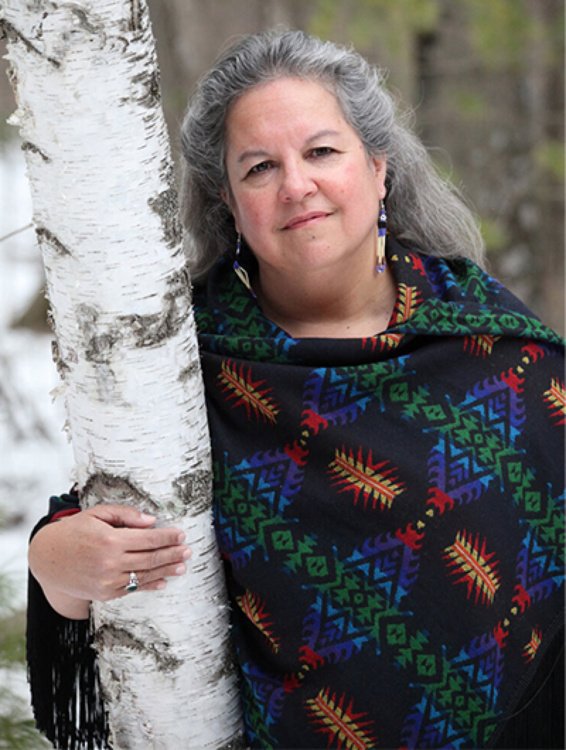Join Robin Wall Kimmerer, the author of Braiding Sweetgrass: Indigenous Wisdom, Scientific Knowledge and the Teaching of Plants, for a seminar and Q+A session with the University of Colorado Denver, and NEST Studio for the Arts.
This seminar is part of a year-long project, "Environmental Futures", which Erin Espelie, the curator of Union Hall’s current exhibition on view, Co-Terminous , is spearheading. Union Hall’s current exhibition Co-Terminous is presented in partnership with NEST Studio for the Arts. *Registration is required to participate.
About the Author:
Robin Wall Kimmerer is a mother, scientist, distinguished professor of Environmental Biology at SUNY College of Environmental Science and Forestry, and enrolled member of the Citizen Potawatomi Nation. As the author of Braiding Sweetgrass: Indigenous Wisdom, Scientific Knowledge and the Teaching of Plants, Kimmerer has earned wide acclaim. Kimmerer's interests in restoration include not only restoration of ecological communities, but restoration of our kinship to land.
Join the University of Colorado Denver for an afternoon featuring a presentation by Dr. Robin Wall Kimmerer, followed by a discussion between the author and Dr. Clint Carroll, Associate Professor, CU Ethnic Studies and a general Q&A session. This presentation is sponsored by the CU Museum of Natural History and the Andrew W. Mellon Foundation's 2020-2021 Sawyer Seminar "Environmental Futures" at the University of Colorado Boulder (an interdisciplinary project including NEST Studio for the Arts, the Center for Native American and Indigenous Studies, Art & Art History, and the Natural Hazards Center).
About the Lecture Series:
The Mellon Sawyer Seminar, Deep Horizons: Making Visible an Unseen Spectrum of Ecological Casualties & Prospects, aims to traverse multiple disciplines and perspectives to investigate intersectional questions concerning the changing planet as it affects specific peoples, communities, wildlife species, and ecosystems in varying and inequitable ways.
The year-long seminar will be led by faculty from art, biology, cinema, history, indigenous studies, linguistics, sociology, and other departments. Together, the team will invite preeminent scholars and practitioners to CU Boulder and host numerous public events, in

